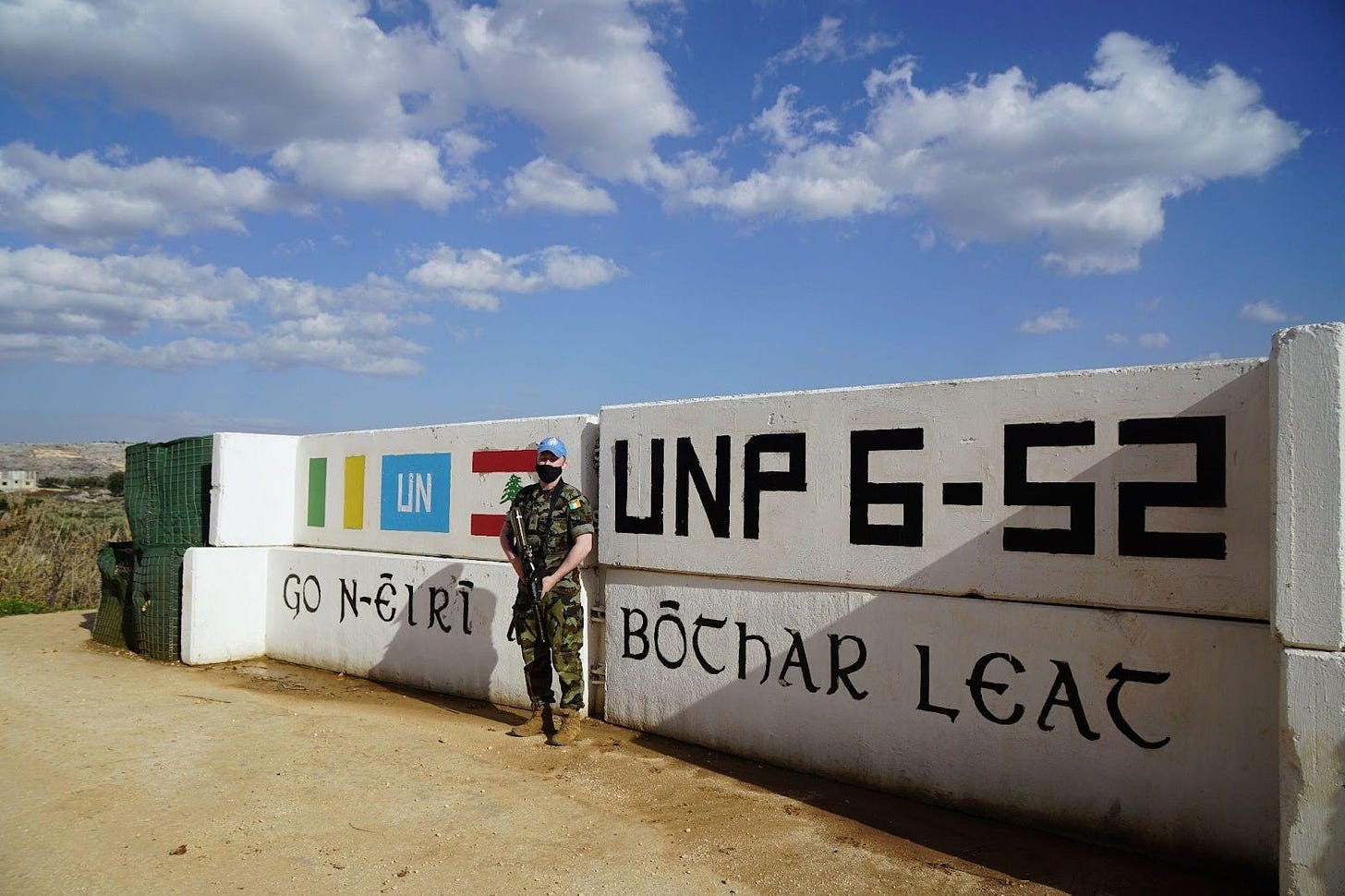UN Peacekeepers, Child Marriage in Bangladesh, COP29 in Azerbaijan, and More
The latest at Inkstick Media.

Hello, everyone.
As Israel’s war in Lebanon intensifies, United Nations peacekeeping forces have increasingly found themselves under pressure — and facing incoming fire. Israel’s prime minister has accused the peacekeeping troops of acting as human shields for Hezbollah, as Hannah McCarthy reports, but the UN force is “more important than ever,” one soldier insisted.
The US has a long history of intervening in Latin America to support hardline dictatorships in their efforts to squash left-wing movements. Chile is no exception — and the Pinochet regime’s 1974 killing of leftist leader Miguel Enriquez, as Ramona Wadi writes, highlights the way that fraught history continues to live today.
That’s not all we’ve got at Inkstick. And if you’re not already, please follow us on Twitter, LinkedIn, Threads, Facebook, Instagram, and YouTube.
“Deepening Climate Crisis Fuels Child Marriage in Bangladesh” by Rafiqul Islam Montu (Oct. 28)
As the climate crisis deepens, impoverished and desperate families have felt the pinch. Facing dire financial straits, more and more have turned to marrying off the young girls in their families in order to cut down on living expenses — especially in the wake of climate-caused disasters.
“Azerbaijan’s Human Rights Abuses Should Overshadow COP29” by Andrea J. Prasow (Oct. 28)
The UN has recognized that tackling the global problem of climate change requires genuine participation from diverse players, including civil society. The fact that Azerbaijan will lead conversations on climate change while systematically silencing its people — including environmental activists — is a glaring contradiction.
“UN Peacekeepers Under Pressure as Israel Expands Lebanon War” by Hannah McCarthy (Oct. 29)
Near daily exchanges of fire that began in October 2023 with Hezbollah firing rockets into northern Israel, after Israel’s war on Gaza began, spiraled into an all-out war in September. Meanwhile, Israeli forces have increasingly fired on UN peacekeeping troops.
“Why the 1974 Killing of a Chilean Revolutionary Still Matters” by Ramona Wadi (Oct. 30)
Five decades have passed since Chilean dictator Augusto Pinochet’s regime killed Miguel Enriquez, the leader of the country’s Revolutionary Left Movement (MIR). Yet even today, his death remains a symbol of Washington’s long history of meddling in Latin America.
“Unhidden: Author Michele Norris on Race, Identity, and Elections” by Jon Letman (Oct. 31)
Author Michele Norris knows the power of a postcard. In 2010, she scattered postcards to take the pulse of Americans’ views on race and identity. The postcards came back from all across the country. What began as a “conversation starter” has grown into well over 500,000 archived submissions.
“Deep Dive: Participation Politics in Norway” by Emily Tamkin (Nov. 1)
We assume that participatory governance arrangements — where policy development includes citizens — help strengthen elected officials’ leadership capacity. But do they really? That’s the question at the core of a new paper that examines citizens’ influence on leadership in Norway.
From the desk of Patrick Strickland, managing editor of Inkstick Media.




